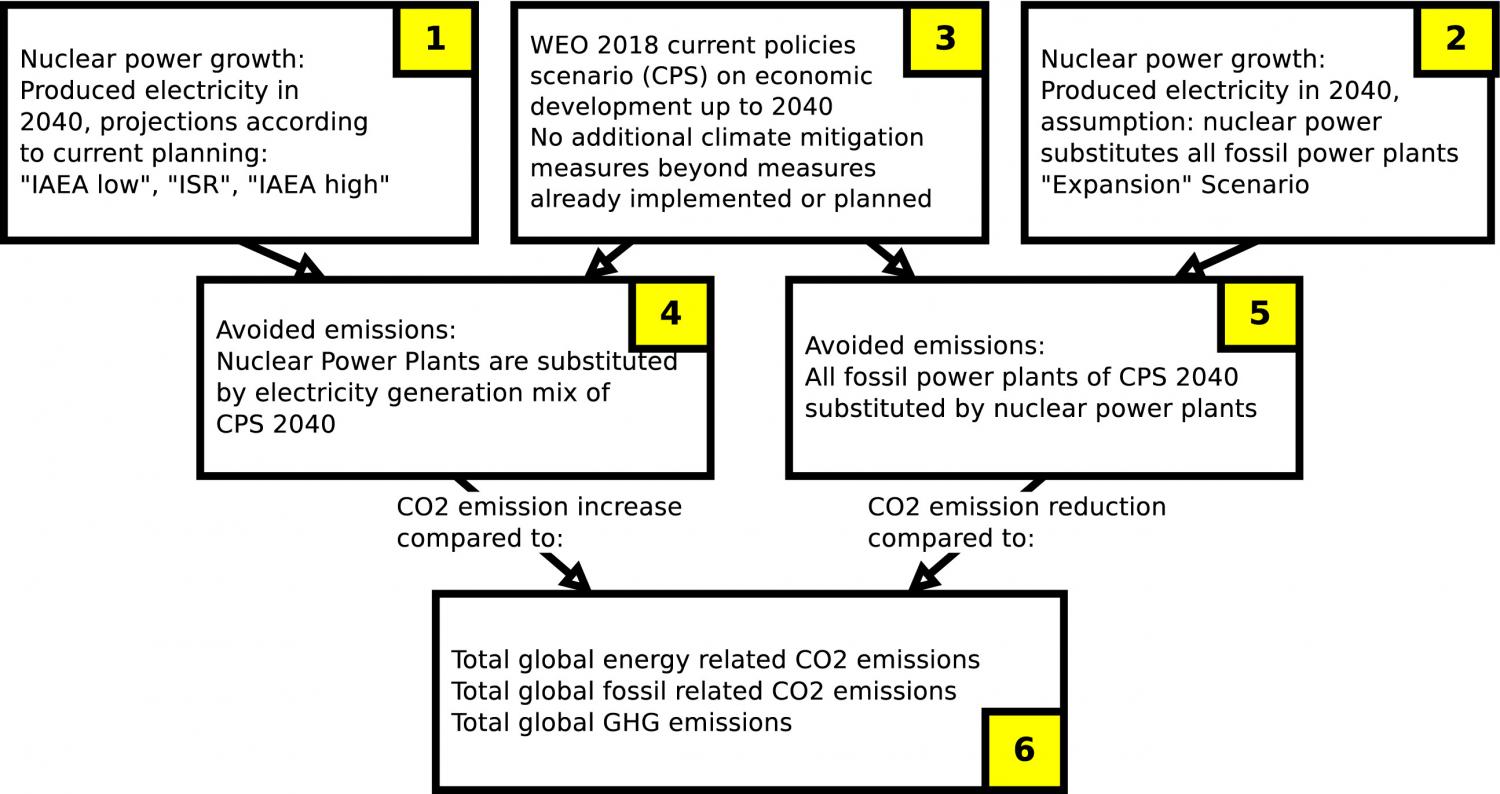
With increased awareness of climate change in recent years nuclear energy has received renewed attention. Positions that attribute nuclear energy an important role in climate change mitigation emerge. We estimate an upper bound of the CO2 saving potential of various nuclear energy growth scenarios, starting from our projection of nuclear generating capacity based on current national energy plans to scenarios that introduce nuclear energy as substantial instrument for climate protection. We then look at needed uranium resources. The most important result of the present work is that the contribution of nuclear power to mitigate climate change is, and will be, very limited. At present nuclear power avoids annually 2–3% of total global GHG emissions. Looking at announced plans for new nuclear builds and lifetime extensions this value would decrease even further until 2040. Furthermore, a substantial expansion of nuclear power will not be possible because of technical obstacles and limited resources. Limited uranium-235 supply inhibits substantial expansion scenarios with the current nuclear technology. New nuclear technologies, making use of uranium-238, will not be available in time. Even if such expansion scenarios were possible, their climate change mitigation potential would not be sufficient as single action.
